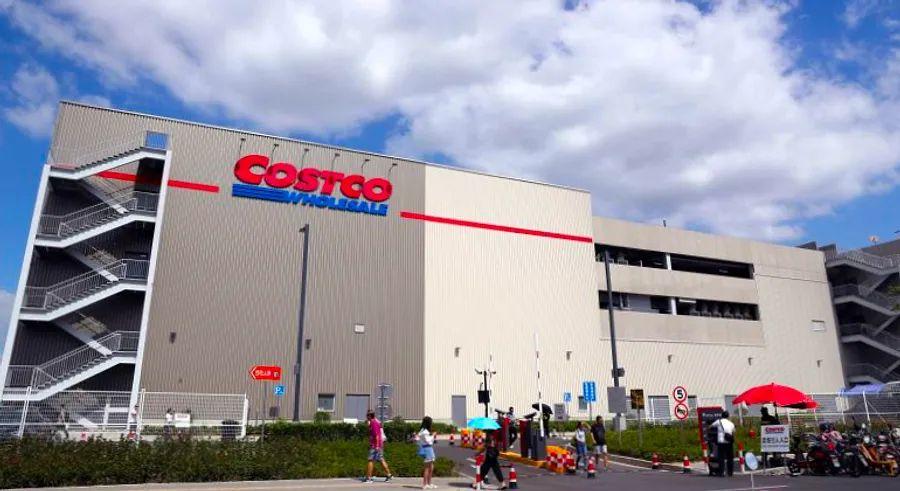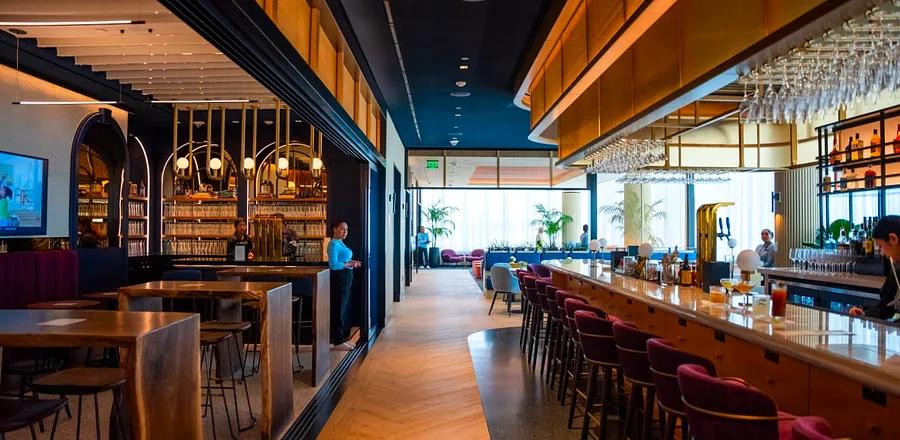Why are Chinese influencers flocking to a Costco in Shanghai? (Spoiler: It's not about the discounts)

A girl in a green varsity jacket relaxes with her feet up in a shopping cart in a deserted parking lot; a group of friends in sunglasses show off pizzas and sodas; another girl, wearing a baseball cap, strikes a pose on a lawn at twilight, gazing at her long shadow on the grass.
These images, now trending across Chinese social media, all share a common element – the bold 'Costco Wholesale' logo prominently displayed in the background, often set against a deep blue sky.
The American retail giant, which opened its first Shanghai location to overwhelming crowds in 2019, has become an unexpected hotspot for Chinese influencers. However, it’s not the store’s bulk deals attracting them; it’s the ‘California vibe’ they’re after.
For almost two years, China’s strict Covid-19 border policies have kept most people from traveling abroad: limited outbound flights, harsh quarantine measures upon return, and a freeze on passport renewals for all but essential travel have made international trips nearly impossible.
Despite the challenges, some Chinese influencers have found inventive ways to bring a taste of the exotic to their social media profiles – by snapping photos at spots like the Costco in Shanghai.

On Xiaohongshu, a popular Chinese fashion and lifestyle app often dubbed China’s Instagram, users exchange tips on how to pose in front of the massive retail store to create the illusion they’re in Los Angeles.
The tips include wearing bright, casual outfits, using pizza and soda as props if you lack a Costco membership, and shooting photos during the late afternoon when the light is warmer and the colors pop more vividly.
Most users are honest about the fact they’re not actually in LA, just having fun with the concept – phrases like “Pretending to be in LA” often appear in their captions.
Other popular pandemic-era hashtags include “Pretending to be in Paris” and “Pretending to be in Tokyo,” with users posing in settings like foreign-inspired shopping streets, cafes, or tea gardens.
For many influencers, it’s just a playful way to spice up their social media feeds. But these posts also serve as a painful reminder of how long China has been cut off from the rest of the world.
Before the pandemic, international travel had become a regular part of life for China’s burgeoning middle class.
In 2019, mainland Chinese tourists made 155 million trips, with Macau, Hong Kong, Vietnam, Thailand, Japan, South Korea, Myanmar, and the United States being the most popular destinations.
At the peak of the pandemic, global travel came to a standstill, as countries scrambled to close their borders and cancel international flights.
Now, with many countries easing restrictions and adapting to life with the virus after widespread vaccination efforts, China remains steadfast in keeping its borders tightly shut, sticking to its zero-Covid strategy aimed at completely eliminating the virus within its borders.
With international travel off the table, Chinese authorities have turned their focus to promoting domestic tourism. China’s vast landscape and cultural diversity offer plenty to explore, but it’s uncertain how much longer the public will tolerate being cut off from the true experiences of LA, Paris, or Tokyo.
And with the highly contagious Delta variant, even traveling within the country carries its own risks.
China’s most recent outbreak, which has affected over 300 people across 12 provinces, is tied to a dozen tour groups, according to health officials. Travel agencies have also been prohibited from organizing cross-provincial tours in areas with high infection rates.
In China’s northwest, hundreds of domestic travelers were stranded in Inner Mongolia and Gansu for days after authorities imposed strict lockdowns to contain the virus’s spread.
In Ejin Banner, a region of Inner Mongolia, the local tourism board offered an apology to stranded tourists by providing free entry to three popular attractions, valid for the next three years. However, whether these tourists will return remains uncertain.
Evaluation :
5/5



